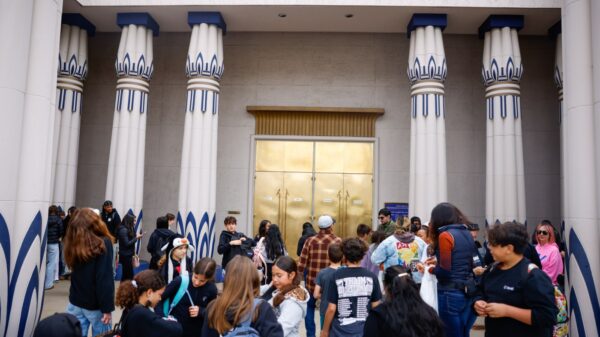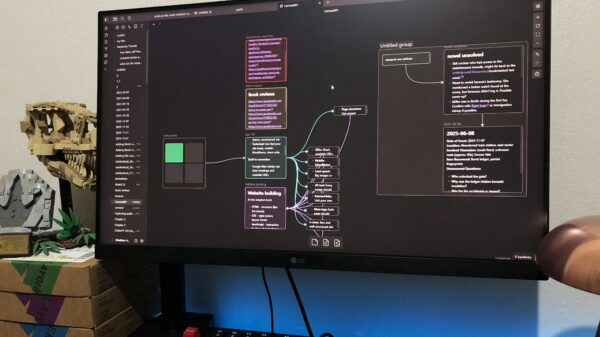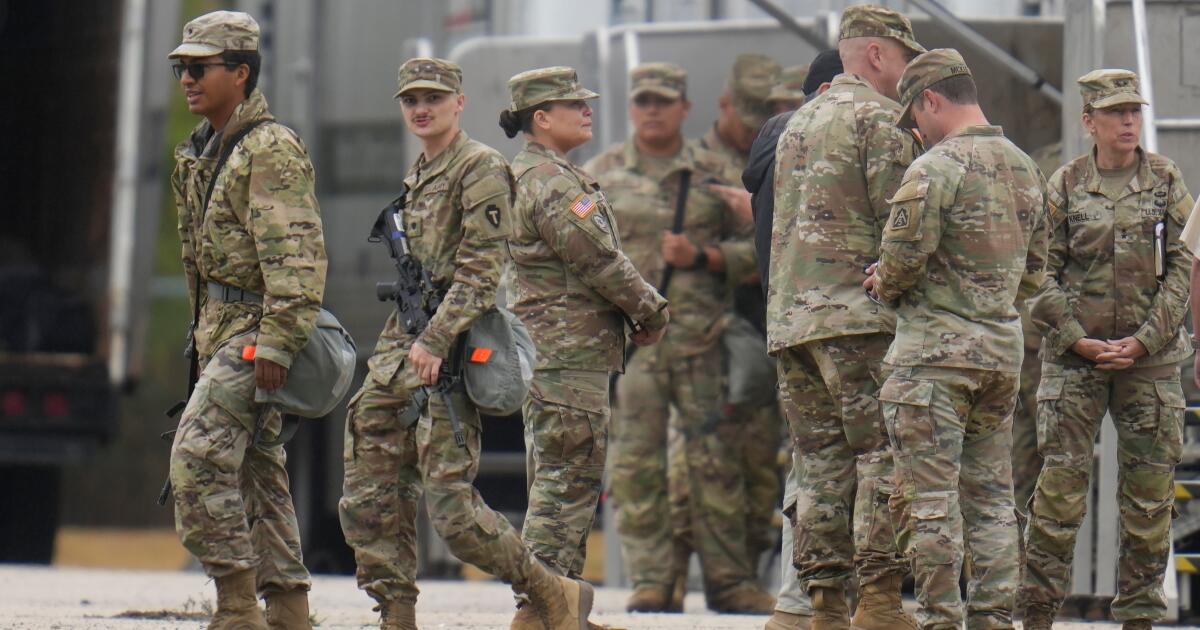UPDATE: The 9th Circuit Court of Appeals is urgently reconsidering its previous ruling that granted President Donald Trump broad authority to deploy troops domestically, a significant development that could reshape military engagement in American cities. This rare judicial review took place in Pasadena on Wednesday, just five months after Trump’s controversial decision to send thousands of federal soldiers to Los Angeles, stirring national outrage.
The panel, comprising judges Jennifer Sung, Eric D. Miller, and Mark J. Bennett, is evaluating the legal basis for such deployments, which have become alarmingly routine in recent months. The judges are focusing on an obscure subsection of U.S. code that governs the President’s ability to mobilize the National Guard and federal troops, a topic that has ignited intense debate in courts nationwide.
During the session, Judge Miller posed a critical question: “Why is a couple of hundred people engaging in disorderly conduct comparable to a rebellion?” This inquiry highlights the divisive interpretations surrounding the definition of “rebellion,” with legal experts emphasizing that the applicable statute is vague and largely untested in history.
The court’s June ruling, which favored the administration’s expansive view of military deployment, underscored a “great level of deference” to the President. However, the recent review signals a potential shift in perspective, as Judge Sung suggested that the statute implies a necessity for factual basis before initiating troop presence.
The implications of this review are profound. Legal representatives from both sides have turned to legal definitions to argue their positions, with California’s Solicitor General Samuel Harbourt contending that the government’s broad interpretation of “rebellion” threatens civil liberties. He stated, “We’re concerned that the breadth of the definition the government has relied on… includes any form of resistance.”
In an urgent context, a ruling from the Supreme Court regarding a related case in Oregon may not fully dictate the legal landscape in California. The Trump administration has hinted at expanding its deployment powers, claiming no limitations on troop presence duration or locations once federalized.
Judge Bennett raised concerns over whether the law allows for indefinite troop mobilization, questioning if the President’s decision could effectively allow military presence to persist without judicial scrutiny.
As this legal saga unfolds, citizens across the nation are left questioning the ramifications of such military actions. Political opposition does not equate to rebellion, as highlighted by the Midwest’s 7th Circuit ruling, which emphasized that protests advocating legal reforms cannot be labeled as insurrection.
This ongoing judicial review is pivotal, not only for legal precedents but also for the future of civil rights in America. As the 9th Circuit deliberates, the outcome will have lasting effects on how the federal government engages with protests and civil unrest, raising the stakes for public safety and constitutional freedoms.
Stay tuned for more urgent updates on this developing story.





































































